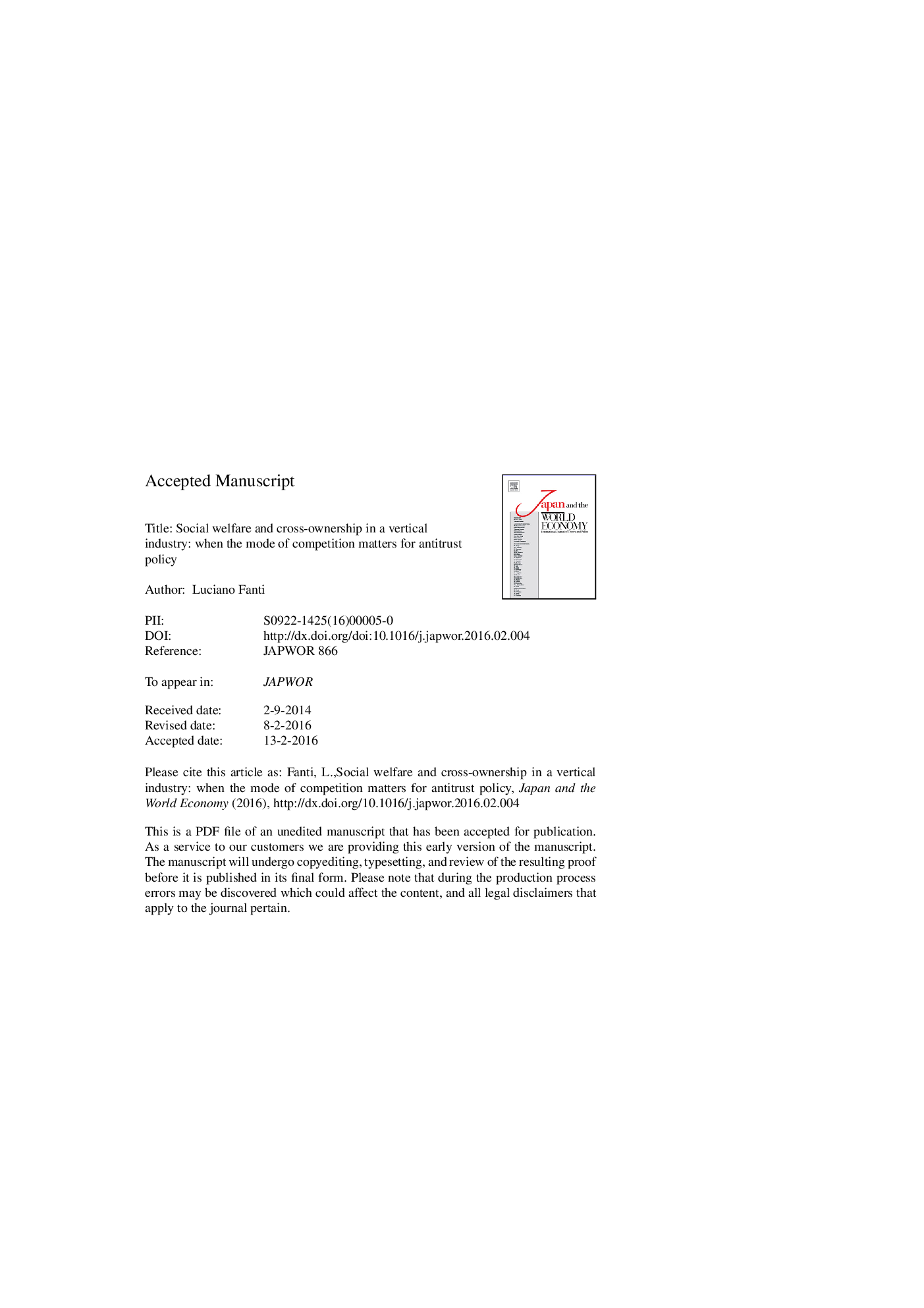| Article ID | Journal | Published Year | Pages | File Type |
|---|---|---|---|---|
| 5086123 | Japan and the World Economy | 2016 | 24 Pages |
Abstract
The paper is motivated by the empirical observations of passive non-controlling partial ownership among competing firms in vertical markets with imperfect competition. The model encompasses a two-stage game. For given input prices, two downstream firms compete à la Bertrand in differentiated products. Each firm faces a firm-specific input supplier. The two input suppliers set publicly observable and linear input prices non-cooperatively in the first stage. All technologies have constant returns to scale. The effects of a one-sided increase in the non-controlling profit participation share of one firm in the other rival firm (i.e. cross-ownership) on social welfare are analysed. The main result is that under Bertrand, in contrast with the common wisdom (which, for instance, holds under Cournot), an increase in cross-ownership can increase total surplus. The reason is that despite the cross-ownership share makes the downstream quantity choice more “collusive”, hence more socially inefficient, it also reduces input prices, and when the competition is in strategic complements and products are not too differentiated the “input price” effect outweighs the “collusive” effect in determining the social welfare outcome. This result suggests that antitrust policy in a vertical industry should also consider the mode of competition in the final product market in the case in which “more” collusion is achieved in the downstream sector through an increase in the one-sided non-controlling profit participation share.
Related Topics
Social Sciences and Humanities
Economics, Econometrics and Finance
Economics and Econometrics
Authors
Luciano Fanti,
